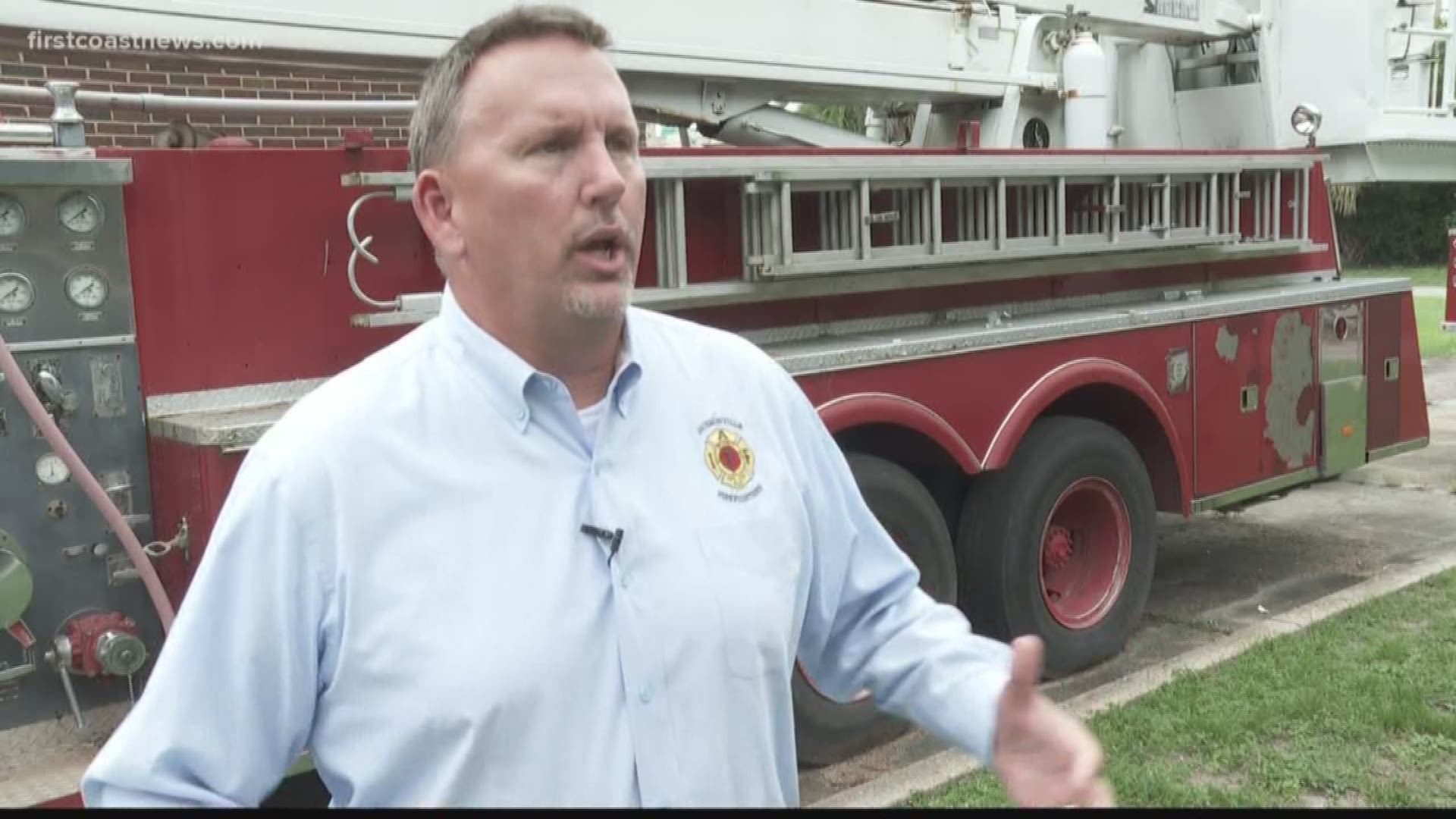JACKSONVILLE, Fla. — First responders along the First Coast are getting new tools in their first line of defense during an active shooter situation.
"Our EMS skills have been continually evolving and getting more complicated and more advanced," said JFRD Union President Randy Wyse.
Following last year's shooting at the Jacksonville Landing, lawmakers gave paramedics the opportunity to carry a gun to high-risk scenes. Agencies like JFRD aren't going that far, but they've added other equipment to the fleet.
"Firefighters are now equipped with tactical body armor. So, that's another big step in the protection piece," Wyse told First Coast News.
Wyse says on-duty firefighters are not allowed to carry guns, but through continuous training with law enforcement agencies, even after the Landing shooting - there's been a much more coordinated effort by relying on each other to reduce greater harm.
"Sometimes firefighters feel like they are impervious to things. So, if you give them things, if you give them body armor, a ballistic helmet, they feel like we can go anywhere. Well, that's not true. We aren't armed," he explained.
Wyse says there's also often a hidden aspect to witnessing mass casualties. The psychological affects to first responders can result in an increase in suicide or substance abuse.
JFRD has more than two dozen peer counselors available, as well as an in-patient facility in Maryland where firefighters can get help.
"We have the ability to be able to send them to some sort of treatment facility to get some help," Wyse said. "We've actually had several firefighters here go through that program and it's worked out very well."
Some of those resources weren't available until recently according to Wyse, causing some of his workers to be stressed into silence.
"Used to be if you got a little emotional on the scene, most of the guys would say, 'You need to suck it up.' Right? It's part of the job. We are trying to get away from that," he said.

